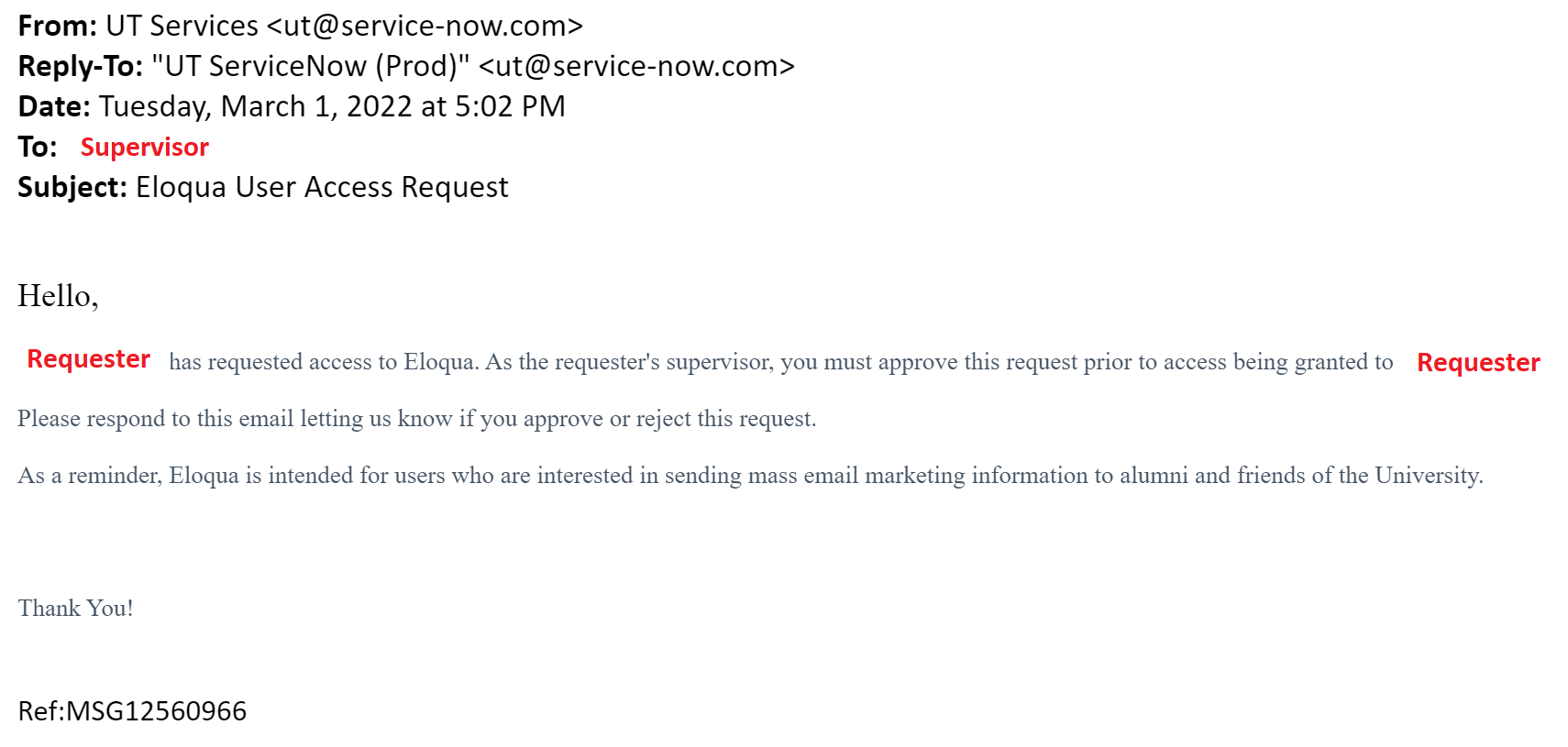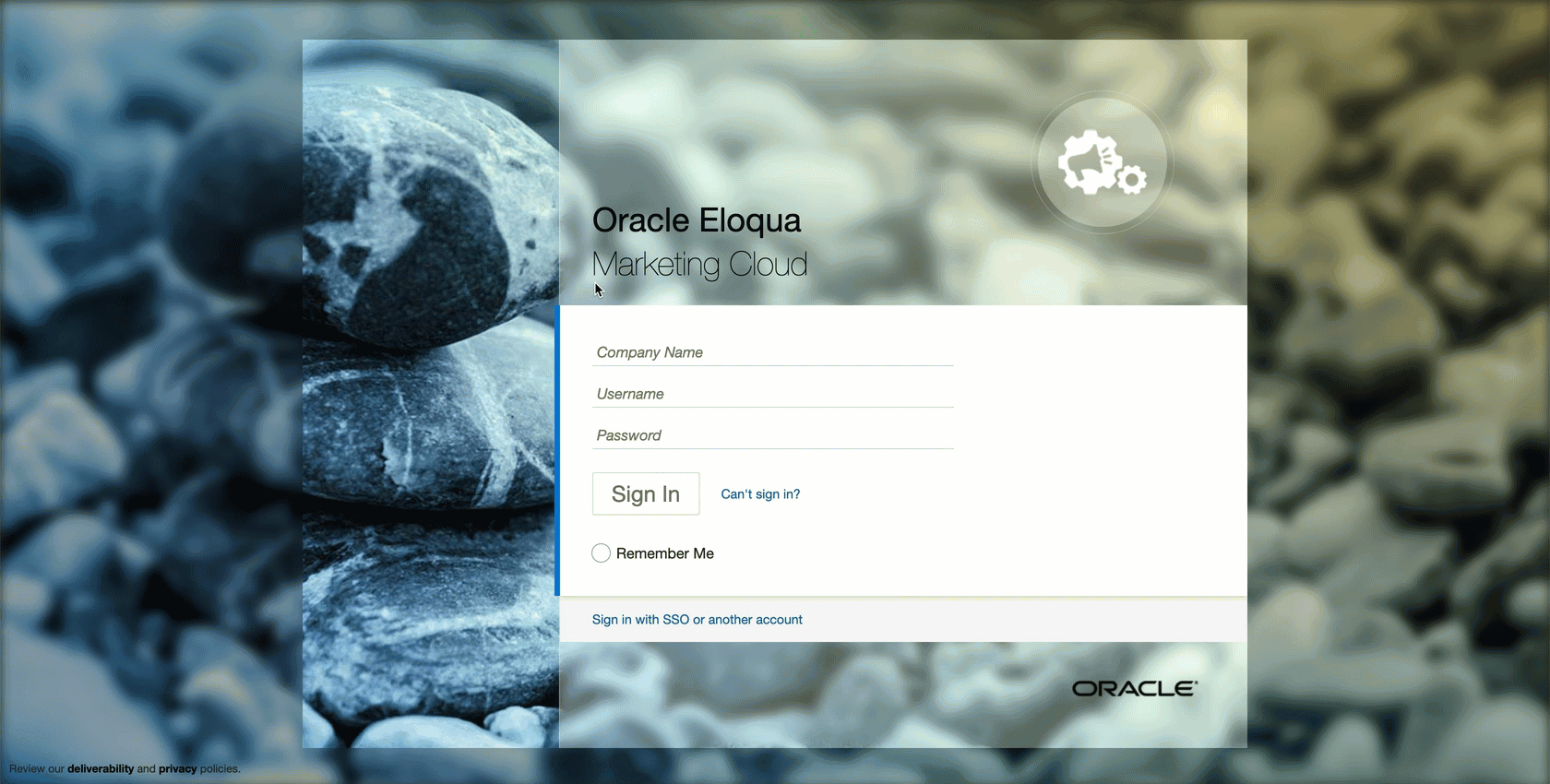
Getting Started with Eloqua
Eloqua is intended for users who are interested in sending mass email marketing information to alumni and friends of the University.
NOTE: If you are sending mass marketing emails intended for internal UT use only, please use the Emma group email tool instead of Eloqua. Emma is used to send important, university-sanctioned messages to specific groups in the campus community. To find out more:
Who can I reach with Eloqua?
The default pool of contacts includes alumni, donors, faculty/staff, and individuals with activity codes or involvements related to your CSU. You also have the ability to upload contact lists.
How do I get access?
We require all Eloqua users to take VI 250 in order to gain access to the system. If you have not taken VI 250, please log on to UT Learn and enroll in the online class:
Once you have completed the class, you may submit an Eloqua User Access Request via ServiceNow at the Texas Development Service Desk.
Note that manager approval is required. ServiceNow will automatically email your supervisor seeking approval. Your supervisor can simply reply to that email to approve the request. The approval will be automatically recorded in ServiceNow. Below is an example of the approval request email sent to the supervisor.

How do I log in?
Click 'Log in to Eloqua' and enter your UT EID and password.
If you do not use the UT Austin Eloqua login page listed above, you may go to https://login.eloqua.com. From there, click the link toward the bottom that says 'Sign in with SSO or another account'. On the next screen, enter the TheUniversityOfTexasAtAustin (no spaces) and click 'Sign In'. This will take you to another page, which prompts you to log in with your UT EID and password.

Should I use a certain browser?
Eloqua recommends using Firefox (Mac) or Internet Explorer (PC).
We know that many of our Eloqua users prefer Chrome, but in our experience, we've seen several instances in which Chrome's performance with Eloqua has been rather questionable; several times, simply suggesting that users switch from Chrome to Firefox will remedy an issue. We recommend that Chrome be avoided.
While Safari isn't an officially supported browser, we've never run into problems using it. If you're logging on while using Safari, Eloqua will give a warning that it isn't a supported option. Simply click on the 'Proceed' button to continue.
Where do I go if I need help?
There are several options available:
- Start with our own UT Austin Eloqua Help page - where you'll find material specific to our UT environment - and search for a subject.
- Visit the Eloqua Help Center to access vendor-supplied help documentation and videos. Note that when you are logged into Eloqua, this content can also be accessed by going to your initials at the top right of the screen, opening the dropdown menu, and clicking on Help Center.
- If you are still unable to find an answer to your question in the above self-help, you can submit an Eloqua Support Request via ServiceNow at the Texas Development Service Desk.